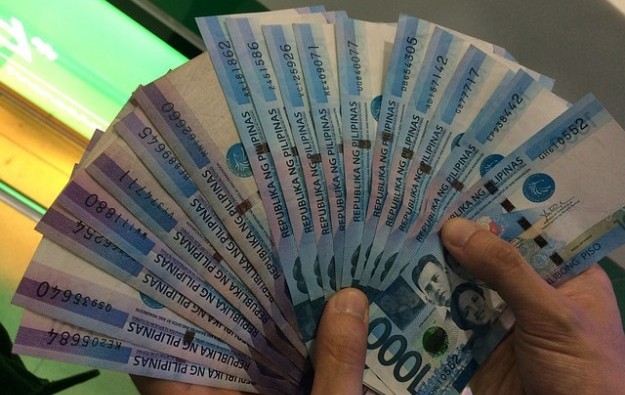Philippine congress mulls US$244mln online bet STRs in 7yrs
Nov 21, 2022 Newsdesk Latest News, Philippines, Top of the deck

The Philippine anti-money laundering watchdog says it notes recent interest by local lawmakers regarding a 2020 risk-assessment report it compiled on the country’s “Internet-based casino sector”.
The report had mentioned 1,031 suspicious transaction reports (STRs) – between 2013 and 2019 – totalling a transaction value estimated at PHP14.01 billion (US$244.2 million).
In a bulletin dated to this October, the Anti-Money Laundering Council said: “At the core of the country’s legislative body’s public hearings in recent weeks… is the consequential impact, both social and economic, of the Internet-based casino sector in the country.”
That was understood to refer in part to concerns about social problems and crimes including kidnap, that have been linked in government statements and media reports to some people allegedly linked to illegal online gambling in that nation.
The watchdog said in a 31-page document containing its 2020 findings: “Of particular interest to the legislators is the AMLC’s Internet-Based Casino Sector Risk Assessment released in 2020 that highlighted money laundering typologies and suspicious (red flag) indicators derived primarily from suspicious transaction report (STRs) involving the sector.”
An upward trend was observed between 2013 and 2016, with a peak in the latter year, of 332 STRs involving transactions amounting to PHP8.8 billion, said the watchdog. That had been followed by a “relative decline” beginning in 2017, up to 2019.
The 2020 report had noted, said the AMLC, that a “majority of the STRs filed in terms of volume are based on the suspicious circumstance of ‘no underlying legal or trade obligation, purpose, or economic justification,’ accounting for 565, or 55 percent, of the total STR data set”.
The report defined the “Internet-based casino sector” as covering the activities of: “gaming laboratories”; “interactive gaming licensees” that were foreign companies registered and/or licensed by the Cagayan Economic Zone Authority; “interactive gaming support service providers”; Philippine Offshore Gaming Operators (POGOs); and “service providers” that “provide components of offshore gaming operations to offshore gaming operators”.
The document did not specify whether land-based casinos offering live-streamed casino games or proxy gambling via live tables, were covered under the suspicious transaction report analysis.
The Philippines’ casino market allows for casino proxy gambling, involving bets placed on behalf of someone not physically present in a gaming venue. That had been highlighted in a 2018 report of the United States Department of State’s International Narcotics Control Strategy Report as part of “ongoing deficiencies” of the anti-money laundering system in the Philippines.
The Philippine authorities have also opened up online-games play for the domestic market, including via so-called Philippine Inshore Gaming Operator (PIGO) licences, as a way to support the industry during the Covid-19 pandemic.
Related articles
-
 China embassy in Manila welcomes POGO...
China embassy in Manila welcomes POGO...Jul 26, 2024
-
 RGB says ‘unaffected’ by...
RGB says ‘unaffected’ by...Jul 26, 2024
More news
-
 Donaco EBITDA up y-o-y to above US$4mln...
Donaco EBITDA up y-o-y to above US$4mln...Jul 26, 2024
-
 HK listed Palasino upgrades Czech...
HK listed Palasino upgrades Czech...Jul 26, 2024
Latest News
Jul 26, 2024
Border-casino operator Donaco International Ltd has achieved a 164.17-percent year-on-year increase in its latest quarterly group earnings before interest, taxation, depreciation and amortisation...Sign up to our FREE Newsletter
 (Click here for more)
(Click here for more)
Pick of the Day
”We’ve got more traction outside of Macau at the moment. But Macau’s going be a bigger focus for us”
David Punter
Regional representative at Konami Australia
Most Popular
 Sheraton brand to exit Londoner Macao, to be Londoner Grand July 25, 2024
Sheraton brand to exit Londoner Macao, to be Londoner Grand July 25, 2024  Macau regulator probes unlicensed gaming agents July 24, 2024
Macau regulator probes unlicensed gaming agents July 24, 2024  Philippines gives 20k aliens in POGOs 60 days to leave July 25, 2024
Philippines gives 20k aliens in POGOs 60 days to leave July 25, 2024  Philippines-listed DigiPlus says not affected by POGO ban July 24, 2024
Philippines-listed DigiPlus says not affected by POGO ban July 24, 2024  Sands China 2Q EBITDA down q-o-q amid low hold, renovation July 25, 2024
Sands China 2Q EBITDA down q-o-q amid low hold, renovation July 25, 2024





